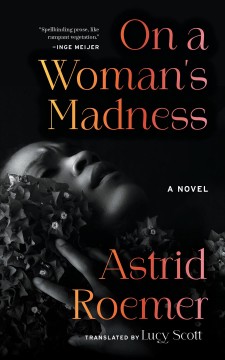2023 National Book Award Winners
- J. Sarr
- Nov 16, 2023
- 4 min read
Updated: Mar 5, 2024
The winners of this year's National Book Awards have been announced! Click the book covers below to view the titles in our catalog, where you can place holds on any that catch your interest.
Fiction
Winner:
Blackouts by Justin Torres
Out in the desert in a place called the Palace, a young man tends to a dying soul, someone he once knew briefly but who has haunted the edges of his life: Juan Gay. Playful raconteur, child lost and found and lost, guardian of the institutionalized, Juan has a project to pass along, one built around a true artifact of a book--Sex Variants: A Study of Homosexual Patterns--and its devastating history. This book contains accounts collected in the early twentieth century from queer subjects by a queer researcher, Jan Gay, whose groundbreaking work was then co-opted by a committee, her name buried. The voices of these subjects have been filtered, muted, but it is possible to hear them from within and beyond the text, which, in Juan's tattered volumes, has been redacted with black marker on nearly every page. As Juan waits for his end, he and the narrator recount for each other moments of joy and oblivion; they resurrect loves, lives, mothers, fathers, minor heroes. In telling their own stories and the story of the book, they resist the ravages of memory and time
Finalists:
Nonfiction
Winner:
The most enduring feature of U.S. history is the presence of Native Americans, yet most histories focus on Europeans and their descendants. This long practice of ignoring Indigenous history is changing, however, with a new generation of scholars insists that any full American history address the struggle, survival, and resurgence of American Indian nations. Indigenous history is essential to understanding the evolution of modern America. Ned Blackhawk interweaves five centuries of Native and non-Native histories, from Spanish colonial exploration to the rise of Native American self-determination in the late twentieth century.
In this transformative synthesis he shows that: European colonization in the 1600s was never a predetermined success; Native nations helped shape England's crisis of empire; the first shots of the American Revolution were prompted by Indian affairs in the interior; California Indians targeted by federally funded militias were among the first casualties of the Civil War; the Union victory forever recalibrated Native communities across the West; twentieth-century reservation activists refashioned American law and policy. Blackhawk's retelling of U.S. history acknowledges the enduring power, agency, and survival of Indigenous peoples, yielding a truer account of the United States and revealing anew the varied meanings of America.
Finalists:
Poetry
Winner:
From Unincorporated Territory [åmot] by Craig Santos Perez
The fifth collection in Craig Santos Perez's ongoing from unincorporated territory series about the history of his homeland, the western Pacific island of Guåhan (Guam), and the culture of his indigenous Chamoru people. "Åmot" is the Chamoru word for "medicine," and commonly refers to medicinal plants. Traditional healers were known as yo'åmte, and they gathered åmot in the jungle, and recited chants and invocations of taotao'mona, or ancestral spirits, in the healing process. Through experimental and visual poetry, Perez explores how storytelling can become a symbo
lic form of åmot, offering healing from the traumas of colonialism, militarism, migration, environmental injustice, and the death of elders.
Finalists:
Translated Literature
Winner:
The Words That Remain by Stênio Gardel, translated by Bruna Dantas Lobato
A letter has beckoned to Raimundo since he received it over fifty years ago from his youthful passion, handsome Cícero. But having grown up in an impoverished area of Brazil where the demands of manual labor thwarted his becoming literate, Raimundo has long been unable to read. As young men, he and Cícero fell in love, only to have Raimundo's father brutally beat his son when he discovered their affair. Even after Raimundo succeeds in making a life for himself in the big city, he continues to be haunted by this secret missive full of longing from the distant past.
Now at age seventy-one, he at last acquires a true education and the ability to access the letter. Exploring Brazil's little-known hinterland as well its urban haunts, this is a sweeping novel of repression, violence, and shame, along with their flip side: survival, endurance, and the ultimate triumph of an unforgettable figure on society's margins. The Words That Remain explores the universal power of the written word and language, and how they affect all our relationships.
Finalists:
Young People's Literature
Winner:
A First Time for Everything by Dan Santat
Dan's always been a good kid. The kind of kid who listens to his teachers, helps his mom with grocery shopping, and stays out of trouble. But being a good kid doesn't stop him from being bullied and feeling like he's invisible, which is why Dan has low expectations when his parents send him on a class trip to Europe.
At first, he's right. He's stuck with the same girls from his middle school who love to make fun of him, and he doesn't know why his teacher insisted he come on this trip. But as he travels through France, Germany, Switzerland, and England, a series of first experiences begin to change him--first Fanta, first fondue, first time stealing a bike from German punk rockers... and first love. Funny, heartwarming, and poignant, A First Time for Everything is a feel-good coming-of-age memoir based on New York Times bestselling author and Caldecott Medal winner Dan Santat's awkward middle school years. It celebrates a time that is universally challenging for many of us, but also life-changing as well.
Finalists:

















































Comments